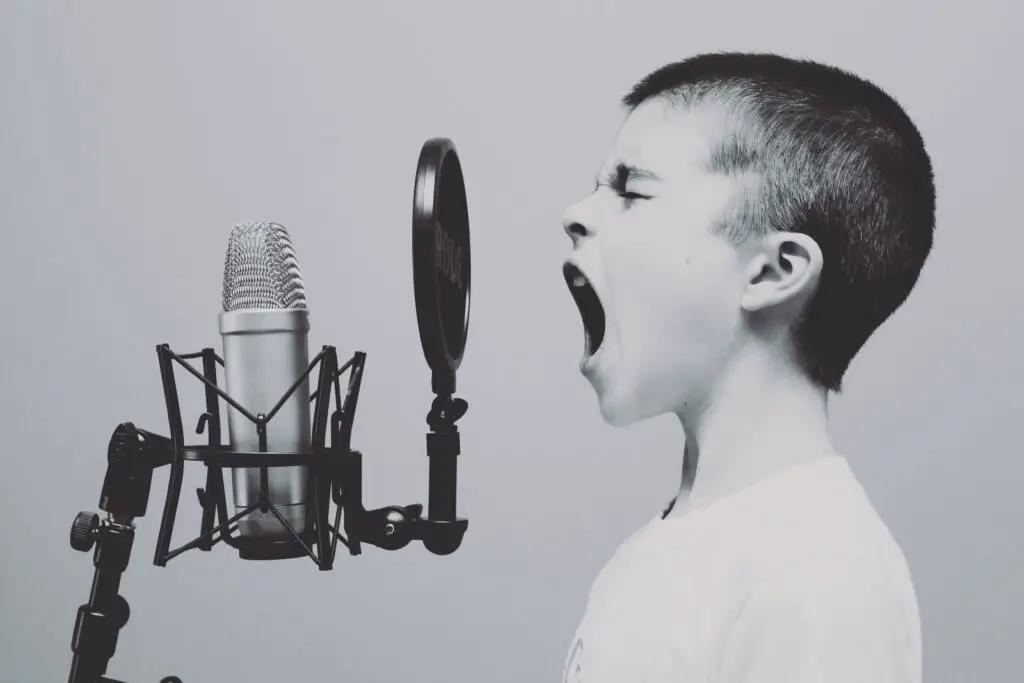The human voice is a complex and dynamic instrument that undergoes changes throughout a person’s lifetime. The age at which the voice stops changing can vary depending on several factors, including gender, genetics, hormonal changes, lifestyle habits, and vocal use. While there is no specific age at which the voice definitively stops changing. There are general trends and patterns that can be observed.

During childhood, the voice typically goes through significant changes. In both males and females, the pitch of the voice tends to be higher during early childhood and gradually lowers as the vocal cords lengthen and thicken. These changes are more noticeable in males during puberty when they experience a sudden drop in pitch, known as the “voice break” or “voice crack.” This occurs due to the rapid growth of the larynx, which houses the vocal cords, and the accompanying lengthening and thickening of the vocal cords.
In males, the voice may continue to mature and stabilize throughout late adolescence and early adulthood. With the vocal cords reaching their full length and thickness. This process is influenced by hormonal changes, particularly the increase in testosterone during puberty, which contributes to the deepening of the voice. However, some males may experience minor changes in their voice even after early adulthood due to factors. Such as aging, lifestyle habits (e.g., smoking), and vocal use (e.g., professional voice users like singers or actors).
In females, the voice tends to stabilize earlier than in males, usually by late adolescence. The pitch of the female voice is typically higher compared to males due to differences in vocal cord size and structure. Female vocal cords are generally shorter and thinner, resulting in a higher-pitched voice. After adolescence, the female voice may undergo more subtle changes related to hormonal fluctuations during the menstrual cycle, pregnancy, and menopause.
It’s important to note that while the voice may stabilize in terms of pitch during early adulthood, other aspects of vocal quality such as tone, resonance, and vocal control can continue to develop and improve with proper vocal training and practice regardless of age. Factors such as vocal technique, vocal health, and vocal habits can also affect the overall quality and stability of the voice throughout life.
Genetics also play a role in voice development and can influence when the voice may stop changing. Voice characteristics such as pitch, timbre, and vocal range can be influenced by genetic factors, as the size and shape of the vocal cords are determined by an individual’s genetic makeup. However, genetic factors alone do not solely determine the final characteristics of an individual’s voice, as environmental factors and vocal use also play a significant role.
Lifestyle habits, such as smoking and excessive alcohol consumption, can have detrimental effects on the voice and may accelerate the aging process of the vocal cords. Smoking, in particular, can cause inflammation and damage to the vocal cords, leading to hoarseness, vocal fatigue, and other voice disorders. Alcohol can also dehydrate the vocal cords and affect vocal quality. Therefore, adopting a healthy lifestyle and avoiding harmful habits can help maintain vocal health and potentially delay voice changes associated with aging.
Vocal use is another important factor that can impact the voice and its stability. Professional voice users, such as singers, actors, and public speakers. Often engage in extensive vocal training and vocal use that can influence their voice quality and stability. Overuse or misuse of the voice, such as yelling, excessive speaking, or improper vocal technique, can strain the vocal cords and lead to vocal problems. Therefore, proper vocal technique, vocal hygiene, and adequate vocal rest are important to maintain a healthy and stable voice regardless of age.
In conclusion, the age at which the voice stops changing can vary depending on several factors, including gender, genetics, hormonal changes, lifestyle habits, and vocal use.